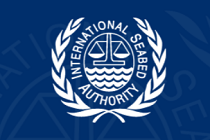 The 26th Session of the International Seabed Authority (ISA) was held in Kingston, Jamaica from December 6-14, 2021. After a two-year hiatus from face-to-face meetings, the ISA Council and Assembly met again in a hybrid format to continue work related to the management of deep-sea deposit resources located on the ocean floor beyond areas of national jurisdiction.
The 26th Session of the International Seabed Authority (ISA) was held in Kingston, Jamaica from December 6-14, 2021. After a two-year hiatus from face-to-face meetings, the ISA Council and Assembly met again in a hybrid format to continue work related to the management of deep-sea deposit resources located on the ocean floor beyond areas of national jurisdiction.
The meeting was a summary of the work conducted over the past two years by correspondence, and in accordance with established rules, decisions made remotely required approval at an in-person meeting. Poland has a contract for exploration of massive sulfides in the Atlantic Ocean since 2018, so participation in ISA Sessions and influence on the decisions of the Organization is particularly important for our country.
The Polish delegates, Piotr Nowak and Bartosz Jasiński (Ministry of Climate and Environment), Tomasz Abramowski (InterOceanMetal), and the delegates of the Polish Geological Institute-NRI, Mateusz Damrat and Agata Kozłowska-Roman, participated in the meetings remotely due to the pandemic. Despite the distance, the delegation took an active part in the work of the Council and the Assembly, and the documents prepared and approved during the ISA meetings, as well as the statements made by the Polish delegation, are available on the website www.isa.org.jm.
During the first week of deliberations, 36 members of the ISA Council were present, either in person or via video link. Participants from the twelve delegations also followed the discussion. Topics discussed included: financial and budgetary matters taking into account the recommendations of the MODM Finance Committee, the Finance Committee's report on equitable sharing of benefits, the report of the Special Representative for Enterprise, the status of exploration contracts and annual reports, an assessment of the implementation of work plans, the training program, and the so-called "roadmap", meaning a schedule of work for the next two years on the preparation of operating regulations.
The Polish delegation proposed to hold informal task group meetings in a hybrid format to facilitate the planned work. Additionally, we thanked the Organization for its contribution to the launch of the Enterprise and expressed the position that work on this topic should continue, with respect to the development of the Mining Code, to which the Enterprise is directly connected.
On the last day of its deliberations, the Council took decisions on, among other things: amending the 2022 and 2023 "roadmap" for the Council's consideration of drafted mining regulations for the Area; and designating four additional Areas of Particular Environmental Importance (APEIs), raising the total number of APEIs in the Zone to 13 with a total area fully protected from mining being from 1.4 to 1.9 million square kilometers.
The ISA Assembly, which consists of all 168 members of the MODM, including 167 countries and the European Union, met the following week. During the first day of the meeting, the Assembly took note of the decisions taken under the "tacit consent" procedure in October 2020. An important point of the meeting was the Report of the ISA Secretary General - Michael Lodge after which 31 countries made their statements.
The Polish delegation supported the hybrid form of conducting the Session, noting its beneficial impact on the smooth functioning of the Organization despite the ongoing pandemic. In the opinion of the Polish delegation, the current activities of the ISA towards the creation of mining regulations require a strong commitment of all Member Countries, taking into account environmental protection, as well as an equitable distribution of the resulting benefits. The Polish statement was delivered by PGI-NRI Director Dr.-Ing. Mateusz Damrat.
Translated by Tomasz Trzpil (PGI-NRI)














 PGI-NRI offer
PGI-NRI offer Mineral resources of Poland
Mineral resources of Poland  Oil and Gas in Poland
Oil and Gas in Poland 



 Subscribe to RSS Feed
Subscribe to RSS Feed